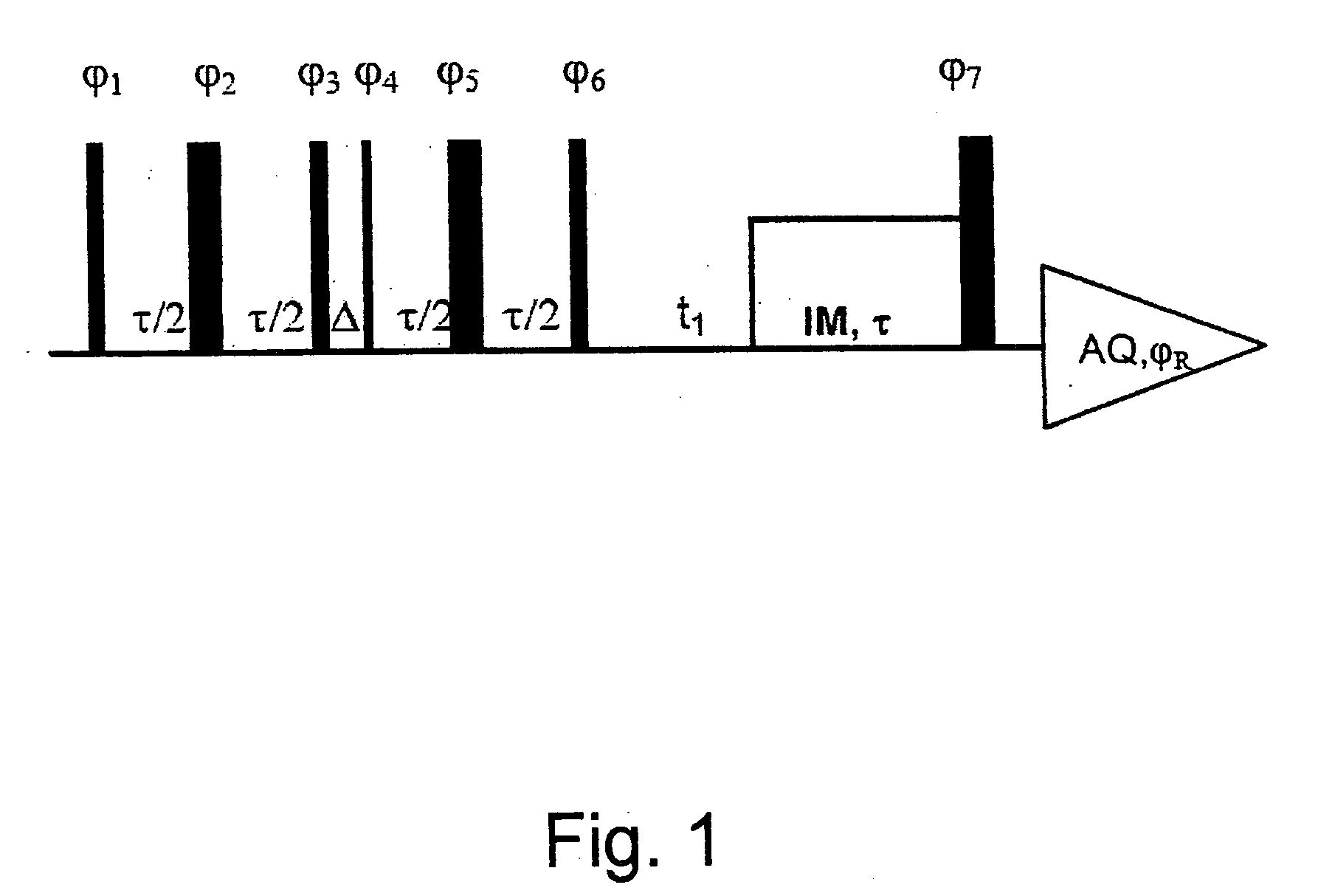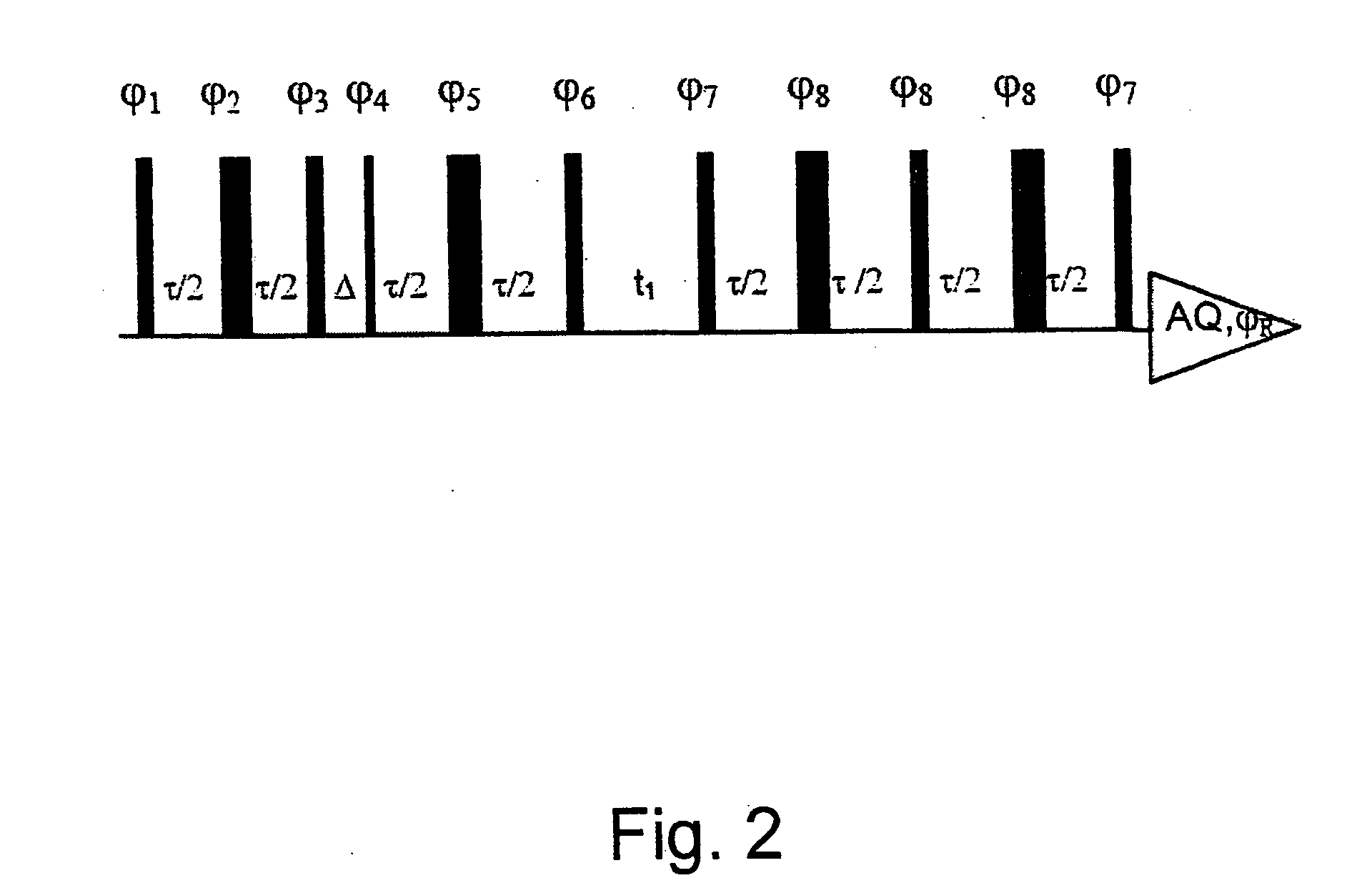Method of 2D-NMR correlation spectroscopy with double quantum filtration followed by evolution of single quantum transitions
- Summary
- Abstract
- Description
- Claims
- Application Information
AI Technical Summary
Benefits of technology
Problems solved by technology
Method used
Image
Examples
Embodiment Construction
[0044]The invention proposes a new family of pulse experiments for correlation spectroscopy of low abundance spins, that results in diagonal suppression and optimal sensitivity with single transition 2D ‘multiplet’ structure in the cross peaks. The sequence also has better relaxation tolerance than corresponding DQ experiments. Implementation involves a double quantum filter followed by reconversion to single transition single quantum coherence, then evolution followed by isotropic mixing or a laboratory frame bilinear analog. These sequences are useful not only in 13C NMR in solution state, but also 29Si MAS NMR in the solid state and the NMR of spin-1 systems in ordered phases. An ‘anti-phase’ version of the experiment is also pointed out.
[0045]More specifically, this document proposes—and demonstrates for 13C at natural abundance—a family of new pulse sequences to achieve the maximum sensitivity as predicted by the relevant unitary bound9, while also achieving a diagonal suppress...
PUM
 Login to View More
Login to View More Abstract
Description
Claims
Application Information
 Login to View More
Login to View More - R&D
- Intellectual Property
- Life Sciences
- Materials
- Tech Scout
- Unparalleled Data Quality
- Higher Quality Content
- 60% Fewer Hallucinations
Browse by: Latest US Patents, China's latest patents, Technical Efficacy Thesaurus, Application Domain, Technology Topic, Popular Technical Reports.
© 2025 PatSnap. All rights reserved.Legal|Privacy policy|Modern Slavery Act Transparency Statement|Sitemap|About US| Contact US: help@patsnap.com



